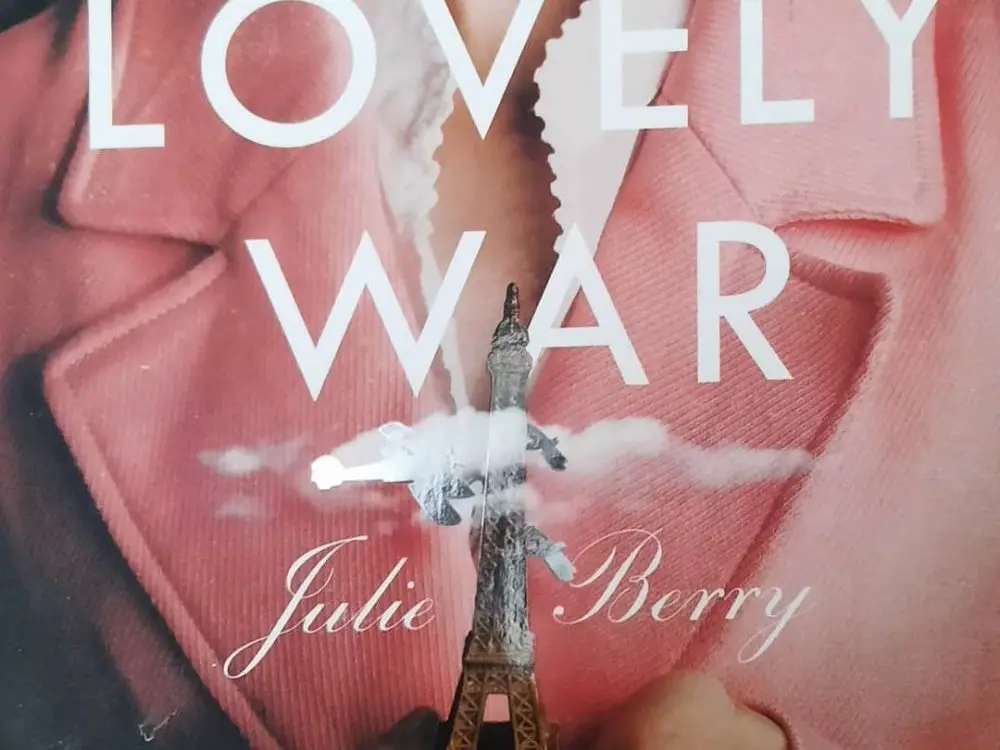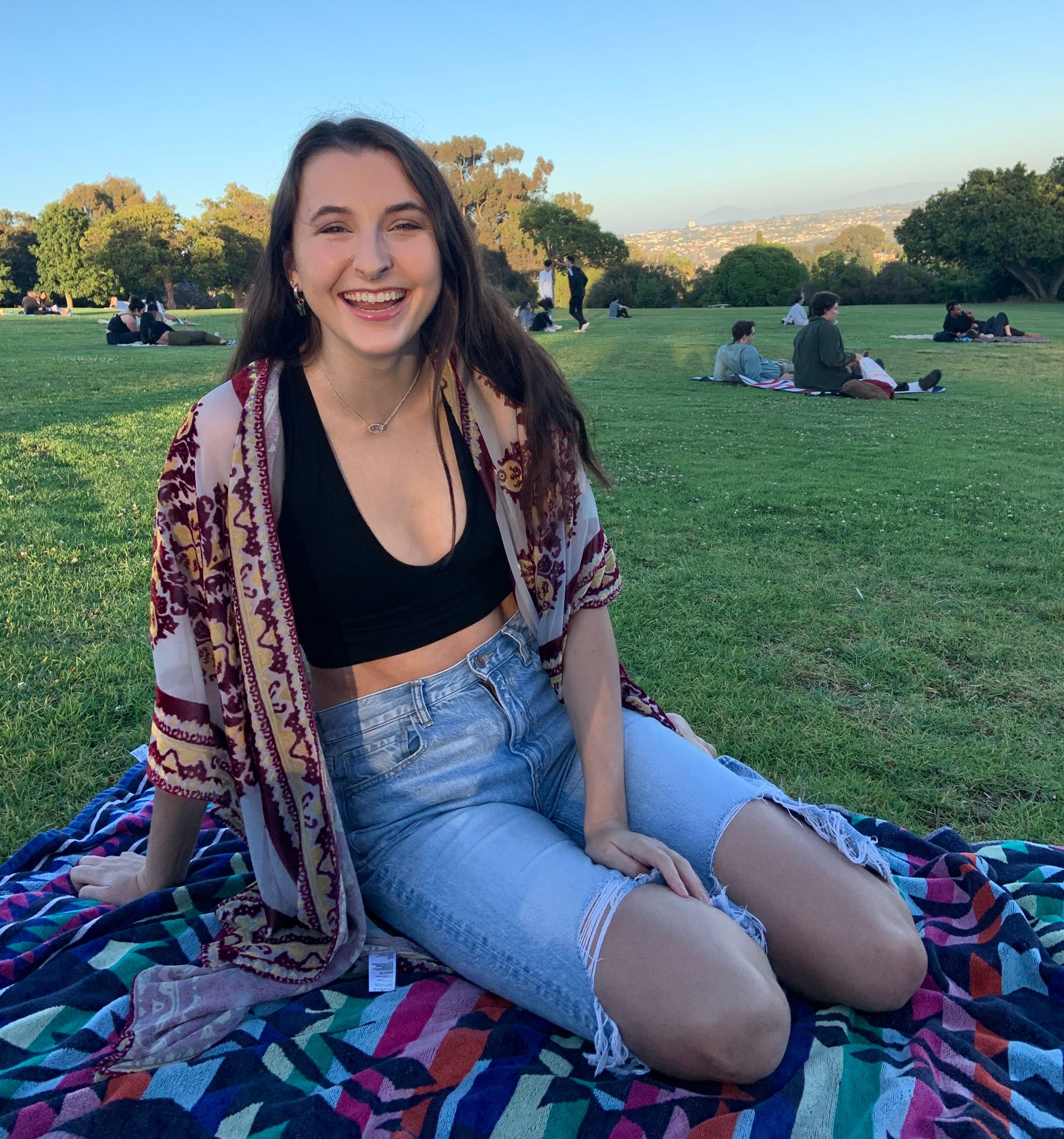“Lovely War” by Julie Berry tells the story of two couples in love during World War I — all narrated by the Greek gods. Hephaestus catches his wife, Aphrodite, cheating on him with his brother Ares, God of War; he holds a trial, in which Aphrodite defends herself by recounting a story of two of her favorite mortal couples she helped to fall in love.
These couples are Hazel Windicott, a British girl from London, with James Alderidge, a soldier headed to the front, and Colette Fournier, a Belgian girl marred by tragedy, with Aubrey Edwards, an African American jazz pianist roped into enlisting in the war.
All four protagonists dance around each other, intersecting at various times. Their stories, though distinct, come together in a harmonious chord plucked by Aphrodite. Both Aphrodite and Ares weave the four protagonists into a rich tapestry, through their love and the ravages of war. Berry’s use of the Greek gods as narrators brings a deeper level of interest to the novel, allowing the work to follow all four characters and watch their romances develop beautifully as Aphrodite brings the lovers to each other.
One theme present heavily in “Lovely War” is racism. Aubrey is Black in the early 20th century, which allows Berry to spend a significant amount of the novel analyzing racism and demonstrating the injustices that Aubrey and his battalion face. Since the work is a historical fiction, Berry weaves the stories of real people within her created characters.
Aubrey’s battalion is the U.S. 369th Infantry, or the Harlem Hellfighters, a notable group of historic Black American soldiers who fought in the trenches of World War I. Aubrey’s commanding officer, Jim Europe, was a real military leader and jazz musician, which is another case of Berry integrating her fictional characters into a historical landscape, taking pains to stick to historical realism as much as she can.
While Berry’s historical depictions aim to not overlook racial dynamics, it can also pose potential issues in the narrative. Very few people would root for an openly racist protagonist, even if the racism stemmed from ignorance instead of malice. To keep her white protagonists likable, she makes Hazel and Colette brazenly not racist.
When Mrs. Davies tells Hazel she can only play piano for white soldiers, Hazel argues with her: “Hazel remembered her father’s words. Be braver than I have been. ‘I wouldn’t mind playing in all the huts,’ she said. ‘I’m sure black soldiers enjoy music.’” She rejects racism while the other volunteers, including members of the clergy, go along with it.
While it is admirable that Hazel stands up to the racist power structures in place at the YMCA and in the military at large, one could argue it toes the line of the “white savior” trope. The author is a white woman, and she portrays white women positively throughout “Lovely War” with the exception of the racist and judgmental Mrs. Davies.
While Hazel’s character edges on harmful tropes occasionally, Berry does an excellent job portraying the violent injustice Aubrey faces as a Black man fighting in a war led by white men, many of whom are incredibly racist. Aubrey enlists willingly with his friends, but is first stationed in the South where he endures a barrage of racial abuse. He then moves to France, but is stationed alongside white Americans, many of whom are Southern and deeply prejudiced.
His mother back in Harlem worries about him, as illustrated through the knowing voice of the God of Death, Hades: “There was no way to steer her Aubrey toward adulthood without his outrageous confidence being battered and scarred by hostility. She only prayed they’d be the kinds of scars he could survive.”
Unbeknownst to Mrs. Edwards, Aubrey is already scarred by the racially motivated murder of one of his closest army friends by a group of white marines, an attack that was originally meant for him due to his romantic entanglement with the white Colette. This damages Aubrey irrevocably, causing him to wrestle with his trauma for the rest of “Lovely War.”
In conversation with Colette, Aubrey questions his own reason for survival. “Why me?” he asks Collete. “Why do I get to live when so many die? Why do I get to live when so many black folks get killed just for breathing the same air as angry white folks?” This line is heart wrenching; the loss of his friend rattles him. As his mother said, before the war he was a joyous and confident young man, but his scars strip him of that.
He sees the injustice of the racist world he lives in, injustice he already felt individually but now feels even more profoundly. His pain is palpable; he feels he deserved to die instead of his friend. He feels it was his actions, even though they were not wrong or immoral, that led to his friend’s death. Aubrey labels himself responsible, and he struggles to process the senselessness of the violence he sees, both on and off the battlefield.
This theme feels especially poignant in the current climate, with the murders of George Floyd, Breonna Taylor, Tony McDade and countless others fresh in the mind of our collective social consciousness. Why did they have to die at the hands of brutal police officers? Why didn’t they get to live full, meaningful lives? Why do Black people have to wonder if they’ll be next, when white people like Rep. Matt Gaetz can get a DUI, have the charges dropped and still serve in government?
While there are less outright violent hate crimes than a hundred years ago, racism still pervades the justice system of the United States and American culture as a whole. Aubrey’s pain is still relevant and still felt by Black Americans everywhere. In this way, “Lovely War,” a story about a war a century ago, feels modern and touches on the contemporary pain Black Americans feel as a result of violent and oppressive racism and police brutality.

















